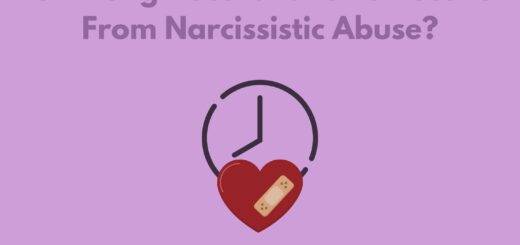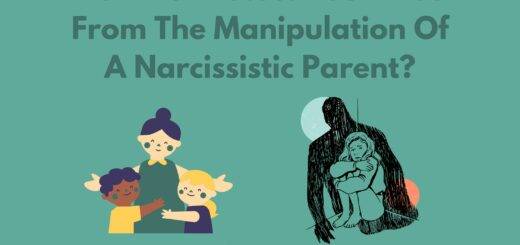11 Red Flags To Help You Identify The Narcissistic Roommate
If you feel you have a toxic roommate, then here are some signs or red flags to help you Identify the Narcissistic Roommate.
You might be here reading this piece of information as you might be fed up with your roommate who may seem overpowering, toxic, manipulative, mean and abusive.

Living in a common space along with your roommate can be both exciting and a fantastic experience in life. This experience can lead you to new friendships and also help you extend your group. You can make life-long memories and develop comradeship that may be cherishable throughout your life.
However, one needs a good cooperative roommate to peacefully share the space. Also, you may also not come across someone who is an ideal roommate, and not all roommate situations are ideal for all. This especially becomes more difficult when that roommate is a narcissist who is self-obsessed, mean, selfish, abusive, toxic, and manipulative.
Here are a few ways that may help you identify the red flags of your narcissistic roommate.
11 Red Flags To Help You Identify The Narcissistic Roommate
Realizing that you are dealing with someone toxic, abusive, or manipulative is the first step to realizing that you are being abused. So to identify a narcissistic roommate the prime step is to acknowledge them as being narcissistic and then deal with them.
Knowing more about narcissism would teach you some ways to deal with your narcissistic roommate without being too noticeable.
Here are a few signs that may help you identify the red flags of a narcissistic roommate,
They are controlling
Some people may be easygoing and may go with the flow, while some people may always be controlling and they may want people to work as they say. They may like to control people, circumstances, and everything around them.
If your roommate likes it when everything goes according to them and they always have to have their way then it may be a sign of toxicity. Generally, everyone likes it when everything works according to them, but when this goes beyond some extent then it is a problematic situation for the people around them.
This can be a problematic situation when you are the roommate of such a person. This may make the living conditions extremely difficult as you may not have your way. When you live with a toxic roommate you need to remember that it is your space too.
Thus when you have a controlling roommate, this can be a sign of them having narcissistic traits.
They Bring out the Worst In You
Living alone can be tough as is, but you may hope for good things when you have a roommate. You may wish to have a person or a partner who may bring the best out of you. You may wish that they may be supportive, understanding, and encouraging. You may want all these qualities especially when you wish to live with them.
For instance, if your roommate has a habit of watching movies, and sitcoms until late at night or till dawn, then they may expect you to do so. This may be good if done occasionally, but if it is on a regular basis, then this can be a disturbing event as this may disrupt the regular lifestyle of a person.
When you live with a person with wrong habits or an incorrect lifestyle, you may also start adapting their ways of life. This may be contagious for you too. If you feel you are also adapting to a sluggish lifestyle just by being with your roommate, then it can be a sign of a toxic or harmful person. In most cases, these may be signs of a narcissistic roommate.
They are passive-aggressive
Toxic people adopt a passive-aggressive approach while dealing with conflicts and a difference of opinion.
Being passive-aggressive means displaying anger but in an indirect manner and abusive people are the masters of this art. Passive aggression not only involves anger but also negative feelings of annoyance, irritation, and frustration.

A passive-aggressive person might act overtly but express their anger covertly. This means they might not display directly that they are angry, but their aggression might take an indirect form, which may include giving you a cold shoulder, obstructing your work or what you want, treating you with a silent treatment, being a prick whenever you badly need their help, and making you furious by acting indifferently indirectly.
Your fury might be caused by them, yet they would shamelessly and calmly ask you questions like, “What is wrong with you?” or “Why do you seem so furious?” or “Why are you provoking me?”. Whereas in reality, they might be the reason provoking you constantly brushing you with anger.
So if you such a roommate or a cohabitating partner, then there are slim chances that may be narcissistic.
Narcissists may display all such negative emotions through indirect or accidental and unconscious behavioral tactics like silent treatment, ghosting, complaining, or any form of hostility. Thus they can be put under the category of passive-aggressive beings.
They will do anything for attention
When you live with someone you may expect equality in everything. You may want to share and listen to both. You may also wish to be seen as much as they like to flaunt themselves. Everybody likes attention, but it becomes a toxic habit or trait when someone demands attention all the time.
When you live together with someone, you may also want to be heard, seen, and understood. You may like it when someone praises you, notices details about you, or at least supports you by providing attention to you and your endeavors.
When you live with someone who only demands attention and never provides attention to you, then there is a possibility that they may be developing narcissistic traits as attention-seeking behavior is the main trait of a narcissistic individual.
They are unwilling to compromise
Compromise is the key to resolving conflicts and clearing out differences. Not everyone may be willing to compromise around you. Compromise is the art or a behavioral trait that may resolve relationships. Through compromise, one can achieve mutually acceptable and beneficial solutions.
Certain compromises cannot be tolerated like compromises in health and hygiene, maintaining cleanliness, breaking certain rules, or invading privacy then such behavior may not be tolerated. Compromise makes the whole experience of living together fuller.
Compromise is necessary as it indicates and ensures mutual respect and regard for each other’s feelings, and needs and makes the bond stronger. So if your roommate or your cohabiting partner always compromises where they should not and do not do it when it is needed the most then it may be a sign of having a toxic roommate.
They are rooting for you to fail
It is an unfortunate situation when you have a cohabiting partner or a roommate who may be rooting for your failures instead of your successes. they may always be undermining your chances to win, and would always expect negative results.

They may never be happy for you and your achievements. They may always root for something negative. They may never praise your achievements. For instance, you aced a test, and if your partner or roommate says, “It was an easy test” or “I just scored a little less than you”, then it is a sign of having a toxic roommate.
They speak in Absolutes
Speaking in absolutes means using descriptive words like “never”, “always”, “most of the time”, “every” and so on. In simple terms, speaking in absolutes is a way in which the other person always tags you for something you did just once.
For instance, if you forgot to get something for them once, they may always point out that you never bring them anything despite the fact you do all their grocery shopping all the time. This act refers to speaking in absolutes. Meaning you may be pinpointed for everything, which you only did once incorrectly.
So when your cohabiting partner or your roommate does this often, this may be a sign of them being toxic, abusive, or even narcissistic.
They stonewall you
Stonewalling is an act of isolating oneself and building a hypothetical hindrance or a wall between others and oneself. It is an act of not allowing someone to penetrate or interfere in your personal life. Stonewalling often includes avoiding meeting people, receiving their calls, and texts, or avoiding any mode of communicating with certain someone because they may have upset you.

When someone is stonewalling you, they may never answer your calls, not reply to your texts. They may never initiate any type of communication, and would just answer whatever you ask. They may show disinterest in your life and would not allow you to take a peak in theirs. They would put you on read, will not call back, or simply just go MIA(Missing in Action). It is just another form of gaslighting, ghosting, or avoiding.
They cannot apologize genuinely
Toxic people may never be able to apologize genuinely. So if your roommate always copy-pastes the same “SORRY” and never displays any changes, then they are providing fake or toxic apologies.
Toxic apologies always may feel like a big annoyance, as they always just try to shut down their big mistakes where they have hurt you immensely. They have broken you emotionally and given you a trauma worth of a lifetime and all they try to do is conceal everything with just a mere sorry which does not even feel genuine. A person’s apology can often be recognized from the way they behave after apologizing.

Guilt and remorse come through an internal reflection of one’s own actions. When you feel bad for doing something and regret committing something that may hurt others or something that seems unethical and immoral. Guilt can peddle feelings like regret and asking for forgiveness and punishment, enticing change in one’s behavior, and making sure to never repeat the mistake or commit such a fault ever again. Guilt brings in repentance and obliges a person to seek forgiveness.
But for toxic people, there is no apologizing, feeling guilty, or remorse for their wrong actions. So when your roommate does not apologize even for the biggest of their wrongdoings, it may be a sign that they are toxic or narcissistic.
They do not care about your boundaries
Abusers or toxic people are not good at maintaining boundaries. When such people cross the line by making a mistake, expect them to repeat the same. Setting boundaries can help you maintain your emotional well-being in the first place. It is not possible entirely to stop the abuser from making mistakes and hurting but establishing boundaries can ease the process.
They overreact to the smallest of things
Let’s say, you and your roommate both may be watching something on the TV till late at night, snacking and enjoying, but in between you both may sleep and leave a mess, keep the TV and lights on, and just leave dirty plates lying around. But to your surprise, they may provide you with cold shoulders for sleeping and leaving a mess.
They may shout at you for sleeping leaving everything on, while ignoring the fact that they themselves were also asleep. This starts on a regular basis when the littlest of things or your actions become bothersome for your roommate and they start overreacting to it. If this happens to you, then my friend, you are living with a toxic or narcissistic person.
Final Thoughts
I am not stating that everyone who does this as your roommate is narcissistic or toxic, but most of them can be without their acknowledgment. They may be narcissistic but they themselves might be unaware. So if you my friend are going through the same living conditions where your roommate is either bothersome, annoying, manipulative abusive, or toxic, then they may be narcissistic.
Not everyone who possesses these traits may be narcissistic but most of them may be partially narcissistic. So if you ar living with someone toxic, then it may be a sign that you are living with a narcissist possibly.
Notice all the red flags and change your residence if possible. It is the best and safest way to save yourself from abuse and manipulation.
- Can a Narcissist Trick a Therapist? - May 1, 2025
- How to Beat a Narcissist? – 11 Ways to Deal with Them - May 1, 2025
- How To Protect A Child From A Narcissistic Father? – 10 Ways - April 30, 2025


